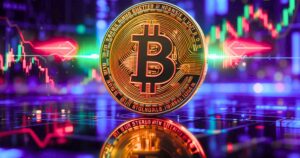The U.S. Securities and Exchange Commission (SEC) is making headlines in the crypto world after Commissioner Hester Peirce clarified that most memecoins—including the popular $TRUMP token—are not considered securities under current regulations. This means that these digital assets generally fall outside the SEC’s regulatory scope, leaving investors without the agency’s usual protections .
NEW: 🇺🇸SEC Commissioner Hester Peirce says TRUMP and other memecoins are outside of SEC's jurisdiction, and investors should not expect SEC's protection when investing in them. pic.twitter.com/xIsv4B8JZL
— Crypto India (@CryptooIndia) May 31, 2025
What Does This Mean for Memecoin Investors?
Hester Peirce, who now leads the SEC’s crypto task force, explained in a recent Bloomberg interview that the SEC will only step in if a memecoin clearly violates securities laws. Otherwise, the agency will not intervene, and investors should not expect any safety net from the SEC when trading these tokens .
Peirce emphasized that each token is evaluated on a case-by-case basis, but most memecoins do not meet the legal definition of a security. She also highlighted that the responsibility for regulating these assets may eventually fall to other bodies, such as the Commodity Futures Trading Commission (CFTC) or even Congress, as the current regulatory framework does not adequately address the unique nature of memecoins .
Why Are Memecoins in the Spotlight?
Memecoins have exploded in popularity, especially in 2024, with platforms like Solana’s pump.fun fueling a 500% surge in market capitalization. The total value of meme tokens has now reached an estimated $120 billion. Despite this rapid growth, the lack of clear regulation has led to increased risks for investors, including scams and market manipulation. For example, pump.fun is currently facing a class action lawsuit alleging it operated like a Ponzi scheme and violated securities laws .
A Shift in SEC’s Approach
Peirce’s stance marks a notable shift from the stricter approach of former SEC Chair Gary Gensler, who often classified cryptocurrencies as securities. Peirce, known for her pro-innovation views, argues that people should have the freedom to invest in what they choose, but must also accept the risks involved. She has criticized the SEC’s previous reluctance to support innovation and called for a more open regulatory environment that encourages experimentation in the crypto sector .
“If people want to buy a token or a product that lacks a clear long-term value proposition, they should feel free, but they shouldn’t be surprised if the price drops,” Peirce wrote in her recent regulatory roadmap .
What’s Next for Memecoin Regulation?
For now, the SEC’s position is clear: most memecoins, including $TRUMP, are not under its jurisdiction. This leaves a regulatory gap that may eventually be filled by other agencies or new legislation. Until then, memecoin investors are largely on their own and should proceed with caution.




